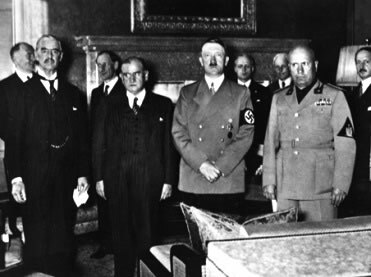THE Urabi revolt occurred in Egypt, between 1881 and 1882, was an anti-colonial nationalist demonstration by part of the Egyptian population against foreign domination in the country. With the colonel as the main leader Ahmad 'Urabi, which gave its name to the revolt, its defeat resulted in British intervention in the country and in the Suez Canal, a situation that would only be overcome in 1956, when control of the canal passed to the Egyptians.
Inserted in the ascension context of the imperialism European in Africa in the nineteenth century, the revolt was a consequence of the attempt to modernize Egyptian society, initiated during the exercise of power by Muhammad ‘Alī. It was also a way to overcome the influence of foreign countries in Egypt. Circassian Turks, Syrians, French and English controlled the high military posts of the army as well as civil and financial control positions in the country.
In this sense, as a political-social movement, the Urabi Revolt was the outbreak of a nationalist feeling
among the better educated Egyptian classes and army officers, but also among the peasantry. The latter was undergoing in the 19th century a process of expulsion from their lands to work in state works and also for the production of cotton for export to industries capitalists.Egypt had declared financial bankruptcy in 1876 as a result of debt for the construction of the Suez Canal. In 1879, the Khedive (viceroy) of Egypt, Isma'il, repudiated the debt, which led France and England to stand against his government, replacing him with his son, the Khedive Tawfiq.
The choice was due to Tawfiq's acceptance of dual control of Egyptian finance by France and England. Among one of Tawfiq's measures was the placement of Egyptians in strategic army posts. Among the names of those placed there was that of Ahmad Urabi, as Minister of War.
Urabi began to use his position in order to limit the powers of the Khedive Tawfiq. In September 1880, Urabi, with a group of Egyptian officials and with the support of the urban population, made his way to Tawfiq's palace in a demonstration. In the meeting with British, French and Khedive officials, Urabi possibly claimed that the Egyptians were not slaves, pointing to the desire to form a self-controlled government. Egyptians. Your phrase "Egypt for the Egyptians!" it inspired the subsequent movement, demonstrating the nationalistic character of the goals.
Do not stop now... There's more after the advertising ;)
The army's pressure against Tawfiq led him to create a kind of representation in the government, giving legislative powers to the Chamber of Deputies, an advisory council that has existed since the Khedive's times Isma'il. In this sense, the movement led by Urabi was a nationalist and constitutionalist movement, which intended to put some sectors of Egyptian society in power. Even with popular support for participation in the government, the imperialist powers opposed the measure, taking a stand against Urabi.
An uprising in the city of Alexandria in June 1882 heightened tensions. Europeans flocked to the British ships anchored in the city's harbor. Khedive Tawfiq saw the moment as opportune to attack Urabi, accusing him of rebellion, as did the Chamber of Deputies. Tawfiq also fled to British ships, being accused of treason by various Egyptian civil and military authorities and leaders.
The British, supported by the House of Commons, began attacks on Alexandria with the aim of bringing Tawfiq back to power. British victory came at the Battle of Tel al-Kabir, when Urabi was arrested with his supporters. It was the end of the revolt. Urabi was deported to Ceylon, an English colony at the time, now known as Sri Lanka. From 1882 to 1914, Tawfiq ruled Egypt as a province of the Ottoman Empire, which was administered by Turkish officials, but under the profound influence of English commissioners.
By Me. Tales Pinto
Would you like to reference this text in a school or academic work? Look:
PINTO, Tales of the Saints. "Urabi Uprising in Egypt"; Brazil School. Available in: https://brasilescola.uol.com.br/guerras/revolta-urabi-no-egito.htm. Accessed on June 28, 2021.

